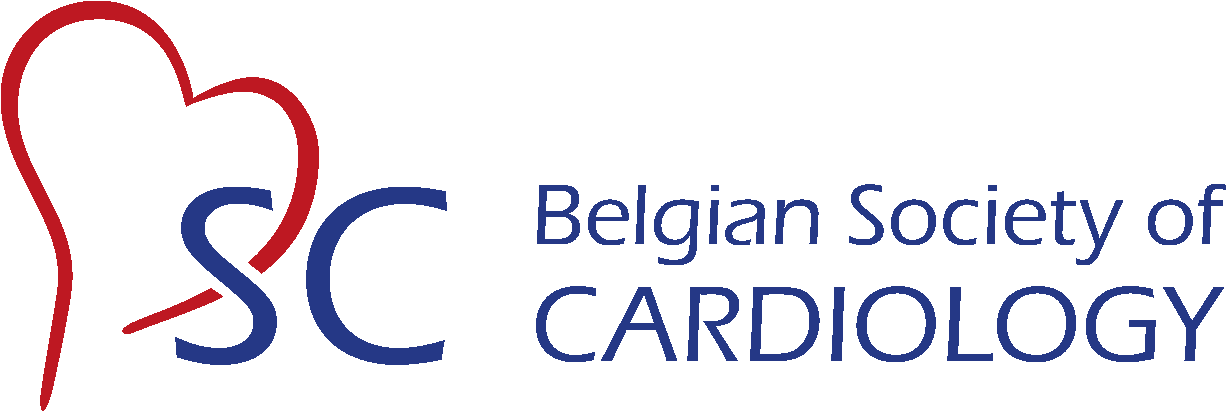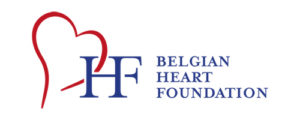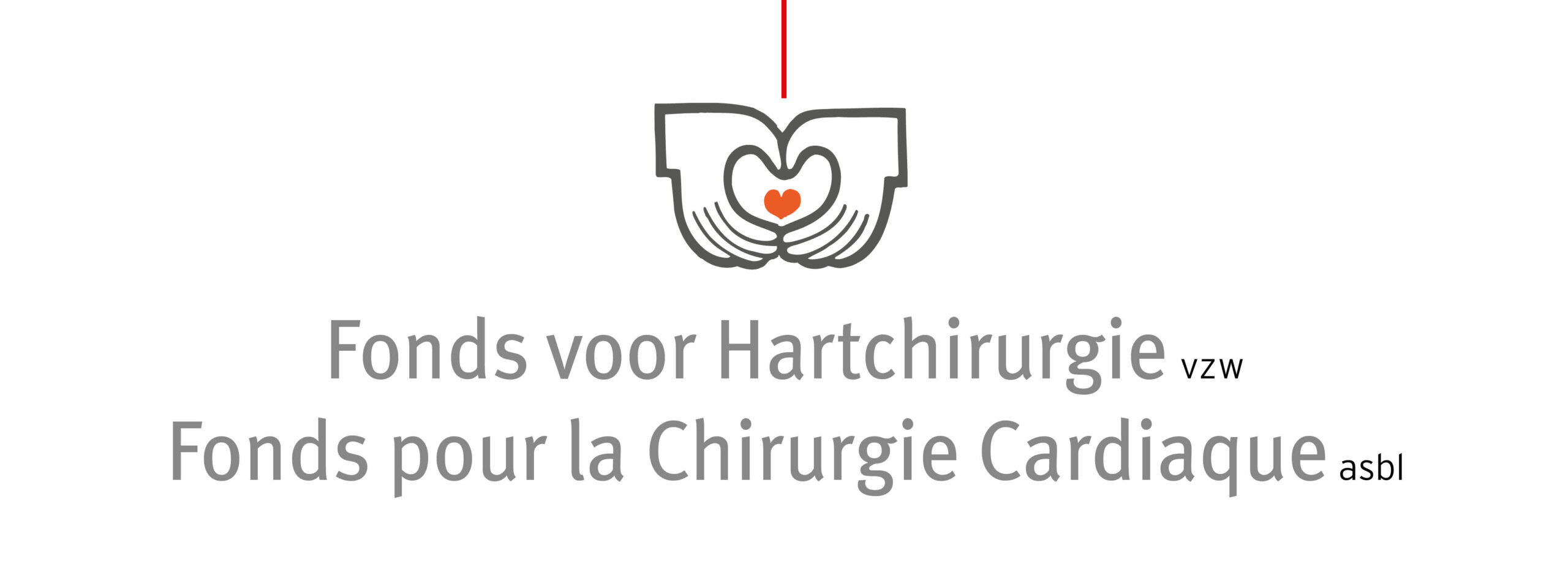Belgian Heart Foundation
- Project calls
- Young Investigator Award
- Dr. Leon Dumont Prize
- BHF Basic Research Grant
- BHF Clinical Research Grant
- BHF Cardio Oncology Grant
- BHF Sports Cardiology Grant
- BHF Randomised Clinical Trial Grant
The submission platform for BHF (Belgian Heart Foundation) research projects, in collaboration with the King Baudouin Foundation, is now open for the following calls:
N° 1 – Basic research in cardiology (up to 3 winners, € 20.000 per project)
The call concerns non-commercial projects for basic research in the field of cardiovascular pathology. This research encompasses scientific disciplines such as biochemistry, physiology, and pharmacology and their interplay, and involves laboratory studies with cell cultures, animal studies or physiological experiments. Patients are not in the centre of the study but biological samples (e.g. blood) can be used for this purpose.
>>> More info
N° 2 – Clinical research in cardiology (up to 3 winners, € 20.000 per project)
The call concerns non-commercial projects for clinical research in the field of cardiovascular pathology. The research must be centred on the patients and aimed to determine the role of medication, intervention, diagnosis, symptoms or prevention in the physiological or pathological processes of the cardiovascular system.
>>> More info
N° 3 – Randomised clinical research trial (€100.000) – in partnership with the Fund for Cardiac Surgery
The call concerns non-commercial projects for multicentre randomised clinical research in the field of cardiovascular research. The research must be centred on the patients and aimed to explore the benefit of interventions (medical or non-medical) in patients with cardiovascular disease. The research should have a multicentre study design with randomisation between intervention and control. The research has to be carried out in at least two Belgian institutions, or more.
>>> More info
Submission deadline: 12 Sept. 2024.
The Young Investigator Award with an associated prize of € 6,500 is given to individuals, whose research reflects new and relevant work in basic or clinical research in cardiology.
Past winners
2024
Basic Science: Lennert Minten – KU Leuven
Optimization of absolute coronary blood flow measurements to assess microvascular function in sheep: validation of hyperemia and higher infusion speeds
Clinical Science: Hanne Boen – U Antwerp
Dynamics of SerpinA3 in response to anthracycline treatment and cardiovascular dysfunction
2023
Basic Science: Géraldine Hubesch– ULB, Brussels
Right ventriculo-pulmonary arterial uncoupling in an experimental HFpEF in rats
Clinical Science: Matthias Engelen – University Hospitals Leuven
Modulation of thromboinflammation in hospitalized COVID-19 patients with aprotinin,
2022
Basic Science: Justine Dontaine – UClouvain, Brussels
AMPK and O-GlcNAcylation: a new paradigm to protect the failing hypertrophic heart
Clinical: Lennert Minten – University Hospitals Leuven
Does coronary lesion complexity and pre-procedural revascularization affect 5-year outcomes in patients undergoing transcatheter aortic valve implantation?
2021
Basic Science: Isabel Witvrouwen, UZ Antwerp
Micrornas as predictors for exercise response in heart failure with reduced ejection fraction
Clinical Science: Simon Calle, UZ Ghent
A strain-based staging classification of left bundle branch block-induced cardiac remodeling
2020
Basic Science: Sander Trenson, UZ Leuven
Cardiac Microvascular Endothelial Cells in Pressure Overload-induced Heart Disease
Clinical Science: Jürgen Duchenne, UZ Leuven
Acute re-distribution of regional left ventricular work by cardiac resynchronization therapy
2019
Basic Science: Kautbally Shakeel
Platelet acetyl-CoA carboxylase phosphorylation: a risk stratification marker evidencing platelet-lipid interplay in CAD patients
2018
Clinical Science
2017
Basic Science
2016
Clinical Science
2015
Basic Science: Peter Haemers
2014
Clinical Science
2013
Basic Science: Guido Claessen
Right ventricular fatigue developing during endurance exercise: a real-time exercise cardiac magnetic resonance imaging study 2012 Clinical Science
2011
Basic Science: Ward Heggermont, KU Leuven
Micro-RNA 146a: a new kid on the block in the pathophysiology of cardiac hypertension, and an interesting therapeutic target
2010
Clinical Science: Alexandre Van De Bruaene, KU Leuven
Iron deficiency in patients with Eisenmenger’s syndrome: does it affect outcome, is oral anticoagulation involved and can there be too
2009
Basic Science: Jozef Van Herck, UZ Antwerpen
Impaired elastin function promotes features of plaque instability in ApoE-deficient mice
2008
Clinical Science: An Van Berendoncks, UZ Antwerpen
Circulating adiponectin levels in patients with chronic heart failure. The effect of exercise training
2007
Basic Science: Pieter-Jan Guns, UZ Antwerpen
Paraoxonase 1 gene transfer lowers vascular oxidative stress and improves endothelial cell function in apolipoprotein E-deficient mice with pre-existing atherosclerosis
2006
Clinical Science: Johan Saenen, UZ Antwerpen
Multi-level study of the pathogenic mechanisms underlying the Long QT Syndrome
2005
2004
Katrien Lemmens
2003
Stefan Heymans
2002
Christophe Beauloye
The Doctor Léon Dumont Prize of €40,000 is awarded every two years to an European researcher in cardiovascular medicine for clinical and experimental research projects.
Past winners
2024
Andreas Gevaert – UZA
Exercise phenotypes to accelerate the personalized treatment of heart failure with preserved ejection fraction
Summary: Heart failure with preserved ejection fraction is prevalent, has poor prognosis and limited treatments. We believe HFpEF can be subdivided according to abnormalities in exercise physiology. Our research has revealed different cardiovascular physiology among HFpEF patients, suggesting potential effect on treatment. We plan to study these patients’ exercise physiology in detail, identify “exercise phenotypes” through machine learning, and create a digital tool for personalized treatment decisions.
2022
Guido Claessen – UZ Leuven
PROSPECTIVE EVALUATION OF CARDIAC REMODELING IN YOUNG COMPETITIVE ATHLETES – IDENTIFICATION OF GENETIC AND ENVIRONMENTAL DETERMINANTS (PRO@HEART). THE PROSPECTIVE ATHLETE’S HEART (PRO@HEART) STUDY
2020
Luc Bertrand – UCLouvain
Importance of protein O-GlcNAcylation in cardiac hypertrophy development
Sandrine Horman – UCLouvain
Limiting platelet lipid synthesis: a defense mechanism against atherothrombosis in coronary artery disease
The prize is awarded to non-commercial projects for basic research in the field of cardiovascular pathology. This research encompasses scientific disciplines such as biochemistry, physiology, and pharmacology and their interplay, and involves laboratory studies with cell cultures, animal studies or physiological experiments. Patients are not in the centre of the study but biological samples (e.g. blood) can be used for this purpose.
Past winners
2024
Bert Callewaert, UGent
Characterizing the spatiotemporal transcriptional landscape of neural crest cell lineages in a zebrafish model for Myhre syndrome
Summary: In Myhre syndrome (MYHRS), cognitive deficiency, congenital heart disease, and impaired ocular and gastrointestinal development identified neural crest involvement in the pathogenesis. MYHRS results from gain-of-function variants (PV) in SMAD4, that disrupt transforming growth factor β and bone morphogenic protein signaling. We use a zebrafish model for MYHRS to understand how abnormal neural crest cell migration and differentiation cause cardiovascular manifestations in Myhre syndrome.
Seyedehsamaneh Ekhteraeitousi, KU Leuven
Deciphering Molecular Pathways of Hypoxia Sensitivity in Adult Cardiomyocytes: An Integrative Cross-Species Investigation
Summary: Adult cardiomyocytes are sensitive to oxygen changes, leading to cell death and heart issues. In contrast, fetal cardiomyocytes resist low oxygen, using glycolysis. After birth, they switch to glycolysis and fatty acid oxidation but lose hypoxia tolerance regulated by HIF. The research seeks to understand these changes and find genes to prevent cardiomyocyte necrosis and maintain energy production, advancing heart disease treatment and personalized medicine.
Ilse Luyckx, UAntwerpen
Identification of cell-specific disease genes for bicuspid aortic valve-related aortopathy by transcriptome-wide spatial profiling of a representative Smad6 mutant mouse model
Summary: In this project, I aim to improve the molecular basis of bicuspid aortic valve-related aortopathy by identifying early cell-specific disease genes in a representative Smad6 mutant mouse model using transcriptome-wide spatial profiling on embryonic tissue. With SMAD6 being the most common mutated gene, I will tackle our current gap in knowledge on the pathogenic basis underlying this disease in order to advance patient management.
2023
Patrick Sips, Ghent University
Exploring the cell-specific mechanisms of aortic disease using fibrillin-1 mutant mouse models
Summary: Marfan syndrome is caused by pathogenic variants in fibrillin-1, and is associated with aortic wall damage. We use fibrillin-1 mutant mouse models to study the mechanisms leading to aortic disease. Using single-nuclear RNA sequencing and immunohistochemical staining we plan to identify changes in aortic cell populations in these models. We will also investigate cell type-specific molecular mechanisms. Our results are likely to lead to improved diagnosis and treatment options for aortic disease.
Didier Communi, ULB
Role of adiponectin and PD-L1 in the release of cardioprotective exosomes
Summary: We have shown that mice deficient for P2Y4 nucleotide receptor display reduced cardiac inflammation and smaller infarcts than wild type mice in the left anterior descending coronary artery ligation model. The present project aims to characterize cardioprotective plasma exosomes in these mice. We will investigate the sources of these exosomes and their ability to induce leukocyte polarization. Human P2Y4 polymorphisms potentially related to cardioprotection will also be studied.
Laurent Bultot, UCLouvain
Study of the molecular mechanisms linking protein acetylation and diabetic cardiomyopathy development
Summary: Diabetes is a growing epidemic affecting a large part of the population and is a significant public health challenge. In addition to vascular defects, diabetic patients develop a particular form of heart disease called diabetic cardiomyopathy. Our laboratory has demonstrated that protein acetylation is crucial in the early stage of the disease. Our project aimed to deeply comprehend the molecular mechanisms linking protein acetylation and the onset of diabetic cardiomyopathy.
Alice Marino, UCLouvain
Myo-inositol/SMIT1 axis: a novel pathway to prevent of treat heart failure
Summary: Growing body of evidence associate changes in cardiac metabolism to the pathogenesis and progression of heart failure. Plasmatic myo-inositol is high in patients with failing hearts, suggesting that it may participate in heart failure development. Myo-inositol transporter SMIT1 is expressed in cardiac fibroblasts and cardiomyocytes. Our hypothesis is that myoinositol/SMIT1 axis favor hypertrophy and fibrosis, thus we aim to establish its impact on left ventricular remodeling and heart failure.
2022
Aernout Luttun, KU Leuven
STUDY OF THE CELLULAR AND MOLECULAR MECHANISMS UNDERLYING CARDIOMYOPATHY CAUSED BY TRANSCRIPTION FACTOR PR DOMAIN CONTAINING 16 (PRDM16) DEFICIENCY IN CARDIOMYOCYTES AND NON-CARDIOMYOCYTE CELL TYPES
2021
Jolanda van Hengel, UGhent
Generation and characterization of three novel induced pluripotent stem cell-derived cardiomyocyte lines as a model to study the pathophysiological mechanisms of arrhythmogenic cardiomyopathy
2020
An Zwijsen – KU Leuven Department of Cardiovascular Sciences, Center for Molecular and Vascular Biology (CMVB)
Contribution of BMP-SMAD regulated biogenesis of microRNAs in organ-specific functions of lymphatic endothelium
2019
Alaerts Maaike – UZ Antwerp
Promising novel approach to Brugada syndrome research: identification of genetic modifiers using genome and transcriptome analysis in induced pluripotent stem cell-derived cardiomyocyte model
The prize is awarded to non-commercial projects for clinical research in the field of cardiovascular pathology. The research must be centred on the patients and aimed to determine the role of medication, intervention, diagnosis, symptoms or prevention in the physiological or pathological processes of the cardiovascular system.
Past winners
2024
Guido Claessen, UZ Leuven
Assessment of polygenic background to explain the association between small heart size and low cardiac fitness (GEN@HEART)
Summary: In GEN@HEART, we’re studying how genes impact heart size, exercise capacity, and cardiac fitness. We’re comparing highly trained athletes with those along the heart failure continuum. Despite similar exercise, some excel, others face heart issues. We suspect genes play a role. We aim to understand if specific genes related to heart size affect fitness. Studying 281 athletes and 312 heart failure patients, we’ll explore this question and if certain genes could lead to better exercise responses.
Andreas Gevaert, UZA
ECSPAND: Exercise capacity improvement by Conduction System Pacing in heArt failure patieNts without compelling CRT inDication
Summary: In this randomized trial, we aim to evaluate the effect of novel conduction system pacing (CSP) versus conventional right ventricular apical pacing on exercise capacity in patients with heart failure (HF) and concomitant conduction system disorders. We hypothesize that CSP improves exercise capacity measured by peak oxygen uptake (VO2peak) as well as other markers of HF severity. The project will also provide deeper physiological insight into the mechanisms of VO2peak improvement by CSP.
Philip Moons, KU Leuven
Unraveling the role of retinal imaging as a clinical tool in evaluating accelerated aging in congenital heart disease
Summary: To date, most patients with congenital heart disease (CHD) can survive into adulthood.
However, survivors often develop morbidities that suggest accelerated aging. We aim to
quantify and understand disparities in chronological and biological age and to scrutinize the role of retinal imaging as clinical tool. We enrol 315 patients, in whom retinal fundus scan and biomarkers will be obtained. Predictors of aging are determined using medical records and a life history calendar.
2023
Caroline Van De Heyning, Antwerp University Hospital
The value of 7-day rhythm surveillance as a novel tool for risk prediction in acute myocarditis
Summary: Acute myocarditis (AM) is an inflammatory heart disease. Symptoms vary from mild symptoms to heart failure and life-threatening arrhythmias. Sudden cardiac death (SCD) may occur up to years after initial presentation. To date, there are no reliable tools for SDC risk prediction or need for a prophylactic implantable cardioverter defibrillator. This project will evaluate the value of 7-day ECG monitoring for risk prediction in AM, comparing 24-hour Holter and cardiac magnetic resonance imaging.
Ines Joye, GZA vzw Ziekenhuizen
Cardiac stereotactic radiation treatment for the ablation of ventricular tachycardia
Summary: Ventricular tachycardia (VT) is a life-threatening condition, usually needing a implantable cardioverter defibrillator in combination with antiarrhytmic drugs and catheter ablation. However, not all patients benefit from these standard therapies. Within a multicentric study, we aim to determine the feasibility, safety and efficacy of cardiac stereotactic body irradiation for patients with ventricular tachycardia who are no (longer) candidates for standard therapies.
Constantijn Franssen, Antwerp University Hospital
The incidence of cardiovascular events and revascularizations in patients treated with Immune Checkpoint Inhibitors in Belgium
Summary: Immune Checkpoint Inhibitors (ICI) have revolutionized cancer treatment. Recent reports suggest a threefold increased risk in acute coronary syndromes upon ICI treatment, which is relevant since indications increase. This project studies the Belgian situation, where 30000 patients received ICI treatment. Data will be provided by the Intermutualistisch Agentschap – Agence Intermutualiste (IMA-AIM), Statbel and the Belgian Cancer Registry and focus on revascularizations, and cardiovascular death.
2022
Jan De Pooter, UZ Ghent
Conduction system pacing: a bench and bedside study. Insights in cardiac conduction disease translated to novel pacing strategies
2021
Henri Gruwez, Ziekenhuis Oost-Limburg
SURGICAL-AF 2 study: The clinical impact of remote heart rhythm monitoring by photoplethysmography-based smartphone technology in the rehabilitation after cardiac surgery: A randomized, open-label, multicenter, pragmatic clinical trial
2020
An Van Berendoncks – Antwerp University Hospital
Prevention of recurrence of hypertensive pregnancy disorders in women with active desire for pregnancy, a randomized controlled trial: a smartphone-based aerobic exercise training program during pregnancy versus usual care
2019
Christophe Vandenbriele – KU Leuven
Mechanical circulatory support: a complex process of thrombosis and haemostasis
The prize is awarded to non-commercial projects in the field of cardio-oncology. The research can be centred on basic insights in cardio-oncology or cover broad aspects related to the clinical practice.
Past winners
2022
Lucas Van Aelst, UZ Leuven
PRECLINICAL AND CLINICAL ASSESSMENT OF THE BENEFICIAL EFFECTS OF HEPCIDIN, A PIVOTAL ENDOGENOUS REGULATOR OF IRON METABOLISM, ON ANTHRACYCLINE-INDUCED CARDIOTOXICITY
2021
Gilles De Keulenaer, Antwerp University
Cardiovascular disease and cancer are linked through the NRG1/ERBB3 signaling system
2020
Emeline Van Craenenbroeck – UZ Antwerp
Discovering the role of titin (TTN) in anthracycline-induced cardiac dysfunction in breast cancer.
The call is made for the first time and concerns non-commercial research projects in the field of sports cardiology and in the field of sudden cardiac death related to physical activities. The research can be centred on basic insights, or cover broad aspects related to the clinical practice.
Past winners
2022
Wendy Hens, UZ Antwerp
ECCENTRIC OVERLOAD TRAINING IN ADDITION TO A TRADITIONAL CARDIAC REHABILITATION PROGRAMME: RANDOMIZED CONTROLLED TRIAL TO EVALUATE EFFECTIVENESS AND FEASIBILITY IN HEART FAILURE PATIENTS WITH REDUCED EJECTION FRACTION
2021
An Van Berendoncks, UZ Antwerp
Supervised home-based combined endurance resistance exercise training programme in asymptomatic adult patients with congenital heart disease. A prospective randomised-controlled trial to evaluate effectiveness, safety and quality of life
This prize is awarded to non-commercial projects for clinical research in the field of cardiovascular pathology.
The research must be centred on the patients and aimed to explore the benefit of interventions (medical or non-medical) in patients with cardiovascular disease.
The research should have a multicentre study design with randomisation between intervention and control.
The research has to be carried out in at least two Belgian institutions, or more.
Past winners
2024
Emeline Van Craenenbroeck, UZ Antwerp
Cardiac Contractility Modulation in Dilated Cardiomyopathy: an exploratory study on the changes in myocardial metabolic profile, in partnership with the Fund for Cardiac Surgery
Summary: Cardiac contractility modulation (CCM) may offer a novel therapeutic option in patients with heart failure with reduced ejection fraction (HFrEF) who are ineligible for CRT. The present cross-over study on CCM therapy will increase our knowledge on the mechanisms of action of CCM. These insights could contribute to patient selection that will benefit the most from this therapy (CCM-responders). Hence, this project is of use if cost-effective health care decisions have to be taken in the future.
2023
Wilfried Mullens, UZ Antwerp
Renal-based optimization of Quadruple therapy in patients with Heart Failure with reduced ejection fraction (ReQUAD-HF): a prospective, multicentre, international randomised-controlled trial, in partnership with the Fund for Cardiac Surgery
Summary: Heart failure (HF) is prevalent with an increasing incidence due to ageing. Prognosis remains poor with a reduced quality of life. Novel quadruple HF therapy has proven to reduce morbidity and mortality in HF with a reduced ejection fraction. However, drug implementation is often hampered, especially in patients with chronic kidney disease who may have the largest benefit due to a higher event rate. This trial evaluates the benefit of a protocol-driven initiation and up-titration of therapy.



